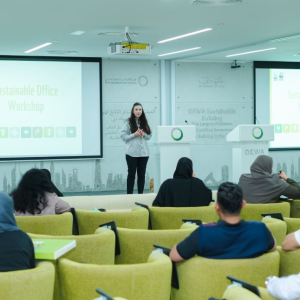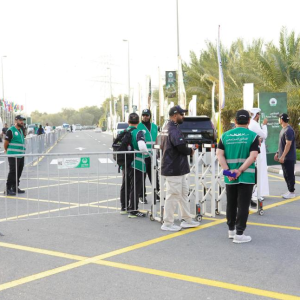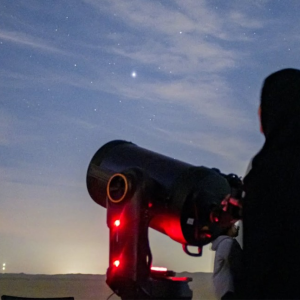In a decisive and principled stance, the United Arab Emirates has reaffirmed its commitment to justice and regional stability by rejecting the displacement of Palestinians. During a recent discussion with U.S. Senator Marco Rubio, UAE President His Highness Sheikh Mohamed bin Zayed Al Nahyan underscored the nation’s unwavering position against any forced relocation of Palestinian communities.
This statement comes at a critical time as the world watches the escalating humanitarian crisis in Gaza and the West Bank. With the UAE playing an increasingly influential role in global diplomacy, the leadership’s firm rejection of displacement sends a powerful message about its commitment to peace, stability, and the rights of the Palestinian people.
A Clear and Uncompromising Stance
The UAE has long advocated for a just and lasting resolution to the Palestinian conflict, supporting a two-state solution and the protection of Palestinian rights. Sheikh Mohamed bin Zayed’s conversation with Rubio reaffirmed the UAE’s steadfast position, rejecting any scenario where Palestinians are forcibly removed from their homeland.

The displacement of Palestinian communities has been a major concern in ongoing regional conflicts, raising alarms about potential violations of international law. The UAE has consistently maintained that a peaceful resolution must respect the sovereignty and dignity of the Palestinian people.

Diplomatic Efforts for Stability
The UAE has been at the forefront of diplomatic initiatives aimed at de-escalating tensions in the region. As part of the Abraham Accords, Abu Dhabi has actively engaged in dialogues that promote coexistence, economic cooperation, and regional stability while simultaneously advocating for Palestinian rights.

In the wake of recent developments, the UAE has intensified diplomatic outreach, engaging key international stakeholders, including the United Nations, the United States, and European powers, to push for a peaceful and sustainable resolution to the conflict.
Humanitarian Commitment: UAE’s Support for Palestinians
Beyond diplomatic measures, the UAE has been a key contributor to humanitarian aid for Palestinian civilians affected by ongoing conflicts. With millions facing displacement, food insecurity, and medical crises, the UAE has stepped up its efforts to provide:
- Emergency medical aid to hospitals in Gaza.
- Financial assistance to support displaced families.
- Essential supplies such as food, clean water, and shelter for those in conflict-affected areas.
The Emirates Red Crescent and other UAE humanitarian organizations have been working on the ground to ensure aid reaches those in need, reinforcing the country’s stance as a leading humanitarian force in the region.
A Regional Balancing Act
As a major player in Middle Eastern geopolitics, the UAE has carefully balanced its diplomatic relationships while prioritizing regional peace and security. By rejecting the displacement of Palestinians, Abu Dhabi is positioning itself as a key voice advocating for a fair and sustainable solution rather than temporary fixes that exacerbate instability.
The UAE’s economic and diplomatic ties with global powers give it a unique position to mediate discussions that could lead to long-term peace efforts. While maintaining its commitments to regional agreements and global partnerships, the UAE has made it clear that its priority remains the protection of human rights and territorial sovereignty.
Global Response and Political Implications
Sheikh Mohamed bin Zayed’s firm position on the matter is expected to influence regional and international conversations on the Israeli-Palestinian conflict. His discussion with Rubio, a key U.S. policymaker, signals that the UAE is willing to engage directly with influential figures to ensure that the Palestinian issue remains on the global agenda.
The response from the international community has been mixed, with some governments backing similar stances while others remain cautious in their approach. However, the UAE’s commitment to justice, humanitarian aid, and diplomatic engagement is gaining recognition as a model for responsible leadership in the region.
The Road Ahead: Strengthening Peace Initiatives
As global efforts continue to find a resolution to the Israeli-Palestinian conflict, the UAE is expected to play a proactive role in peace negotiations, humanitarian relief, and diplomatic mediation. Key future initiatives could include:
- Strengthening dialogues with international bodies like the UN and Arab League.
- Expanding humanitarian programs to support Palestinian refugees.
- Advocating for long-term political solutions that ensure stability.
Conclusion
With its latest stance, the UAE has once again demonstrated its dedication to justice, human rights, and regional stability. Sheikh Mohamed bin Zayed’s rejection of Palestinian displacement is more than just a political statement—it is a reaffirmation of the UAE’s commitment to ethical leadership and sustainable peace.
As diplomatic efforts continue, the UAE’s influence as a regional peacemaker and humanitarian leader is poised to shape the future of the Middle East’s geopolitical landscape.
Do follow Uae stories for more Updates
Gold-Backed BRICS Currency: A Game-Changer or a Distant Dream?












